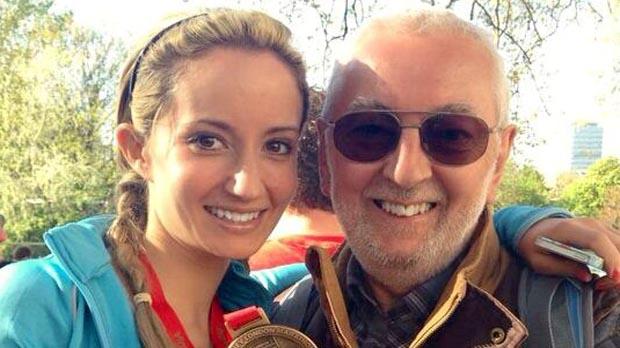
“I think it’s really important that people keep signing up to these type of trials to push research forward.”
Please note - this trial is no longer recruiting patients. We hope to add results when they are available.
This trial is looking at a vaccine for healthy volunteers, to see if it can stimulate an immune response that may make a treatment called stem cell transplant work for more people.
People who have leukaemia or lymphoma may have a stem cell transplant. This is where a healthy person gives (donates) cells called  . These are the cells from which blood cells develop. A stem cell transplant works well to treat some people, but doctors would like to improve the success rates, and prevent some of the complications of stem cell transplant, which can be life threatening.
. These are the cells from which blood cells develop. A stem cell transplant works well to treat some people, but doctors would like to improve the success rates, and prevent some of the complications of stem cell transplant, which can be life threatening.
How well a transplant works mainly depends on how closely matched the person giving the cells (the donor) is to the patient. Doctors try to make sure that certain proteins on stem cells in the donor and the patient match. One of these proteins is called HA1. But not everyone has the HA1 protein on their stem cells (they are HA1 negative). In this trial, healthy volunteers who are HA1 negative will have a vaccine that should make their immune system able to kill cells that do have the HA1 protein. These immune cells can be called HA1 killers. They could be given to patients who are HA1 positive so that they could kill their cancerous cells. The aim of this trial is to see if the vaccine
You will not have any benefit from taking part in this trial. But the results will be used to help people with leukaemia or lymphoma in the future.
You can volunteer to take part in this trial. If you are suitable to join, the research team will ask if you would like to take part. You may be able to enter if you
You cannot enter this trial if you
This trial will recruit up to 24 people.
The first group of people taking part will have the lowest dose of the vaccine. If they don’t have any serious side effects, the next people will have a higher dose. And so on, until they find the best dose to give. This is called a dose escalation study.
You have each vaccination as an injection into your muscle. The number you have depends on when you join the trial, but the total each person has will be either 3 or 4 vaccinations, 3 weeks apart.
You will need to stay at the hospital for 6 hours after each injection, so that the team can monitor you for any side effects. And, you fill out a diary, noting down any side effects for 14 days after each injection. Your research nurse will phone you regularly throughout the trial to see how you are getting on.
You will also give regular blood samples to check that the vaccine is safe, and to look for an immune system response to the vaccine.
Before you join the trial, you will see the doctor and have a  and some blood tests.
and some blood tests.
You go to hospital for each injection. You give a sample of blood at these visits, and also
Your last hospital visit will be 12 months after your first injection. The trial team will pay your travel expenses up to £25 for each visit.
The research team do not know all the side effects that people may have from this vaccine. This is one of the reasons they are running this trial. Possible side effects from the vaccine include
Please note – if you would like to give (donate) blood again in future, you must tell the National Blood Service that you have taken part in this trial.
Please note: In order to join a trial you will need to discuss it with your doctor, unless otherwise specified.
Professor Paul Moss
Bloodwise
Cancer Research UK Clinical Trials Unit Birmingham
Experimental Cancer Medicine Centre (ECMC)
University of Birmingham
If you have questions about the trial please contact our cancer information nurses
Freephone 0808 800 4040

“I think it’s really important that people keep signing up to these type of trials to push research forward.”